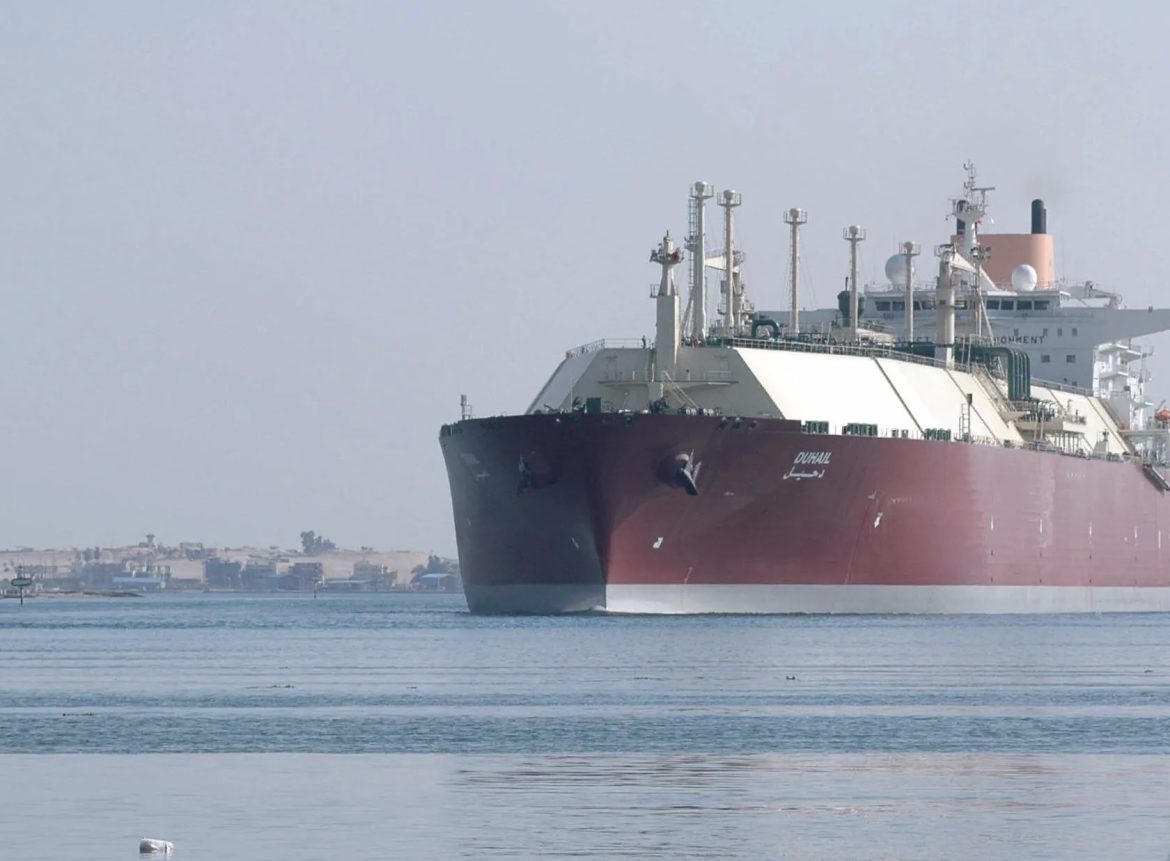KEY POINTS
- Egypt defers LNG cargoes amid softer domestic demand.
- LNG shipments shifted from late 2025 to early 2026.
- Higher gas output and mild conditions ease import need.
Egypt’s state-owned Egyptian Natural Gas Holding Company (EGAS) has requested that its liquefied natural gas suppliers delay at least 20 cargoes that were due for delivery before the end of this year, according to people familiar with the matter.
The decision signals that Egypt defers LNG cargoes as domestic demand softens and power consumption stabilises after the summer surge.
Egypt defers LNG cargoes amid easing demand
The shipments, which had been scheduled to arrive by December 2025, will now be rescheduled for delivery in the first quarter of 2026, Bloomberg reported. The deferral reflects Egypt’s reduced need for imported gas following a decline in consumption tied to the seasonal cooling cycle.
Egypt had shifted from being a net exporter to a net importer of LNG at the end of 2024, as soaring electricity use and industrial demand triggered an energy crunch that forced the government to seek emergency imports. Rolling blackouts across the country last summer underscored the scale of the supply gap, even as Cairo sought to balance its commitments to domestic users and export contracts.
Production rebound helps ease pressure
The latest data from the Ministry of Petroleum and Mineral Resources indicate that Egypt’s gas output has started to pick up after several years of decline. Since August, daily production has risen by more than 200 million cubic feet, providing partial relief to the country’s import costs.
Once a regional energy success story, Egypt had relied heavily on its giant Zohr gas field, the largest discovery in the Mediterranean, to secure export revenues in the late 2010s. But falling onshore output, expanding demand for power generation, and prolonged heat waves have tightened the country’s energy balance, according to OilPrice.
The current delay in LNG deliveries suggests that short-term pressures are easing. For Europe, which continues to fill its storage facilities ahead of winter, Egypt’s decision offers some respite in the competition for spot cargoes.
Still, the broader structural challenges facing Egypt’s energy system remain unresolved, with rising consumption and ageing infrastructure testing the country’s long-term stability.



